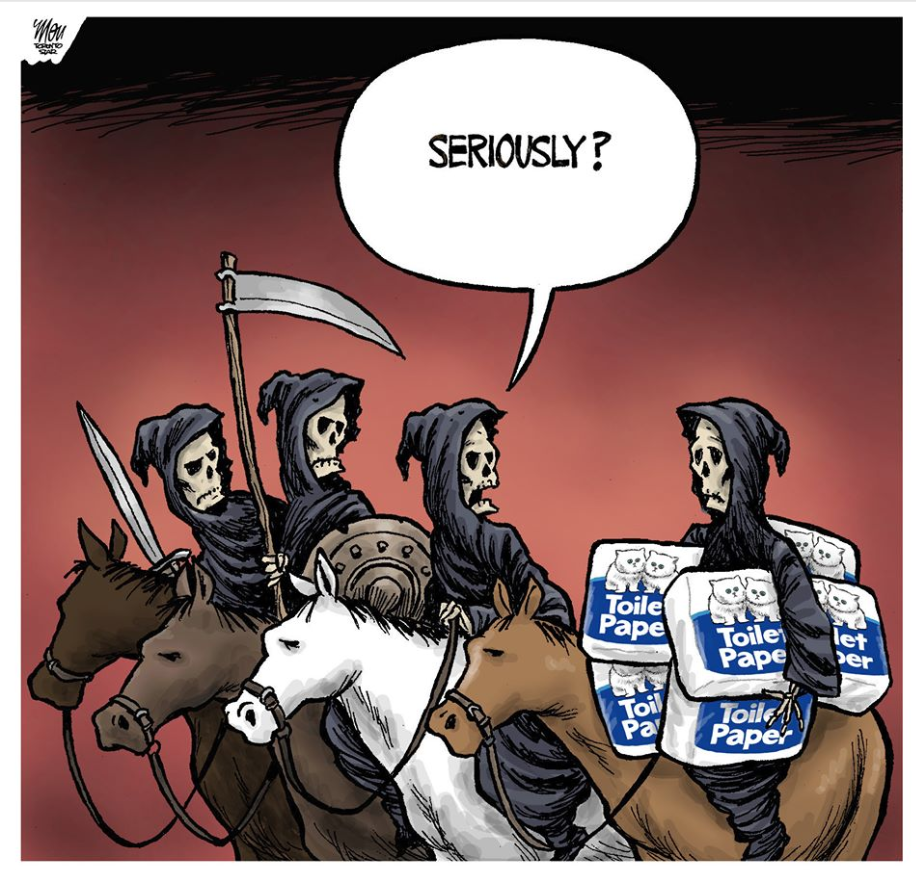This blog has dealt extensively with fear, specifically how I’ve let it disrupt my life in the past — ruining what should have been moments of joy and causing moments of embarrassing behavior.
Mood Music:
The topic has returned to the forefront amid COVID-19. There’s the personal impact of fearing the unknown, and the societal fear where we hand government too much power in hopes of being safe.
It’s a tricky subject to write about because, like anxiety and depression, fear has many different facets. I’ve focused mostly on the bad and perhaps not enough on its usefulness in helping us adapt and meet challenges. I’m gaining a better perspective lately, especially when trying to apply things like the OODA Loop to daily routines.
I’ve been re-reading John M. Barry’s The Great Influenza: The Story of the Deadliest Pandemic in History, and it has helped clarify where fear helps and hurts amid the current pandemic.
He writes about two kinds of fear:
- The kind built on mistrust and distortion, where people make tragic choices because federal, state and local officials refuse to be straight with them about the extent of the contagion’s spread
- The kind based on truth, which scare people at first but quickly give them the wisdom to adapt
In order for an authority to maintain the public’s trust, it can’t avoid some scary truths. Barry writes:
The final lesson of 1918, a simple one yet one most difficult to execute, is that those who occupy positions of authority must lessen the panic that can alienate all within a society. Society cannot function if it is every man for himself. Those in authority must retain the public’s trust. The way to do that is to distort nothing, to put the best face on nothing, to try to manipulate no one. You don’t manage the truth. You tell the truth.
—John Barry, The Great Influenza
How leaders tell that truth matters, though. They can’t talk solely in abstractions and euphemisms. “A leader must make whatever horror exists concrete,” says Barry. “Only then will people be able to break it apart.”
Barry expanded on that second point in a recent interview, saying:
Authorities need to tell the truth, even when it’s uncomfortable — especially when it’s uncomfortable. This is important for two reasons. First, it lessens fear. People are always more afraid of the unknown. When people don’t think they’re getting a straight message they feel uncertain. In a horror movie, it’s always scariest before the monster appears. Once the fear becomes concrete we can deal with it. We can deal with reality. Second, if you want people to comply with your recommendations — and compliance is crucial to success — they have to believe you and trust you. If they doubt you they will ignore you.
I’d like to think I’ve abandoned the unproductive, panic-inducing fear that’s based on the unknown and put the truth-based fear to good use.
My approach is admittedly fatalistic on the surface: I’m just assuming we’ll be in this fight for a long time. I take nothing for granted — my job, my health, my ability to avoid episodes of depression. Losing ground in these areas is all within the realm of possibility.
By accepting that things are and will remain bad for some time and that anything can happen, I can adapt and focus on what’s in front of me — and what’s in front of me is pretty good.
In the face of the current crisis, we are already seeing humanity’s ability to adapt: we’re keeping business and learning going remotely, repurposing plant operations to churn out medical gear and moving from lost hospitality jobs to those that are in demand — grocery stores and medical facilities, for example.
To adapt is to survive and thrive. But we can’t adapt unless we face our truth-based fears first.

